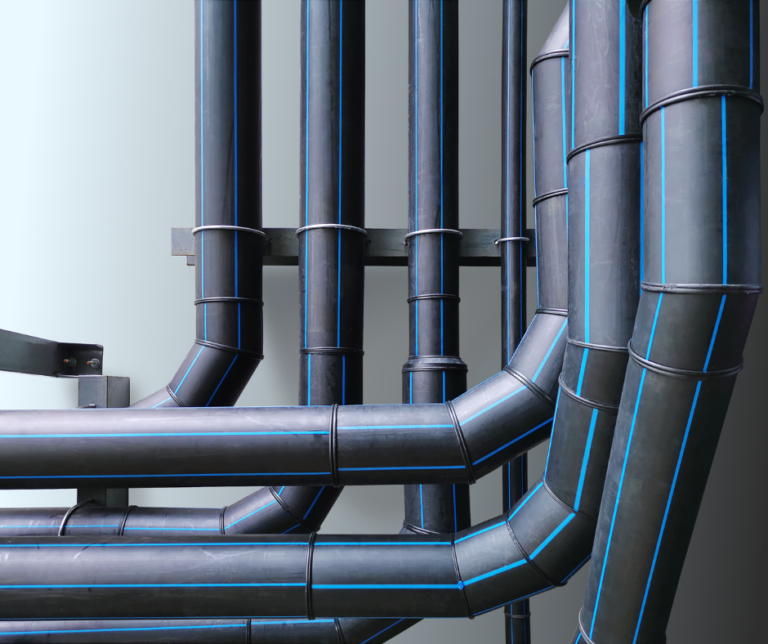Recognizing the Key Benefits of HDPE Pipe for Water and Wastewater Monitoring
Using HDPE pipeline in water and wastewater administration provides various advantages that merit consideration. Its phenomenal resilience and lengthy life-span make it a favored choice for numerous jobs. Additionally, the product's resistance to rust and chemical damages enhances its integrity in different environments. The advantages extend beyond simply durability and resistance. Pipe Supplier American Plastics Midland. Discovering its cost-effectiveness and ecological effect exposes much more compelling reasons for its prevalent fostering in modern-day infrastructure
Exceptional Resilience and Longevity

HDPE pipe sticks out for its extraordinary longevity and durability, making it a favored selection in water management systems. Built from high-density polyethylene, these pipes can endure considerable pressure and stress, making sure trusted performance gradually. Their robust nature permits them to sustain severe environmental problems, including temperature level changes and dirt motions, which can cause other materials to fail.
The life-span of HDPE pipes commonly surpasses half a century, providing a cost-efficient remedy for districts and sectors alike. Furthermore, the material's lightweight residential properties simplify installment, minimizing labor costs and durations. This durability reduces the demand for constant repair services or replacements, better enhancing its economic appeal.
In water monitoring applications, the integrity of HDPE pipelines means less disruptions and enhanced solution connection, making them essential to lasting infrastructure growth. The combination of longevity and durability solidifies HDPE's function as a foundation in effective water administration remedies.

Resistance to Corrosion and Chemical Damage
While numerous materials yield to rust and chemical damage gradually, HDPE pipelines exhibit impressive resistance, making them perfect for different water management applications. This resilience stems from the molecular structure of high-density polyethylene, which is naturally non-reactive and does not corrode like steels or weaken from exposure to extreme chemicals. Because of this, HDPE is very efficient in settings with hostile substances, such as wastewater systems that may include acids, bases, and organic solvents.
In addition, HDPE pipelines can hold up against ecological factors such as soil level of acidity and saline conditions, better improving their viability for diverse applications (American Plastics HDPE Pipe Manufacturing). Their capacity to preserve architectural stability gradually decreases the risk of leakages and failures, which is essential in making certain the security and reliability of water distribution and wastewater monitoring systems. Subsequently, the resistance to corrosion and chemical damages substantially adds to the total effectiveness and longevity of HDPE piping solutions
Cost-Effectiveness and Financial Benefits
When thinking about the monetary implications of water monitoring systems, the cost-effectiveness of HDPE pipes comes to be obvious. These pipes offer reduced setup and upkeep prices compared to traditional products like metal or concrete. Their light-weight nature streamlines transport and installation, resulting in lowered labor expenses. Furthermore, HDPE pipes display a long life expectancy, often exceeding half a century, which equates to less replacements and long-lasting savings.
Additionally, the resistance of HDPE to deterioration and chemical damage minimizes the requirement for expensive fixings and replacements. The pipelines also support reliable water circulation, lowering power prices linked with pumping systems. By alleviating leakages and water loss, HDPE pipes contribute to considerable financial benefits for municipalities and industries alike. Overall, the preliminary investment in HDPE piping can generate substantial economic returns over the life expectancy of the water administration system, making it a sensible choice for lasting framework growth.
Ecological Sustainability and Lowered Effect

Versatility and Adaptability in Setup
Due to the fact that of their special residential properties, HDPE pipelines use exceptional versatility and versatility in setup, making them ideal for a wide variety of applications. Their light-weight nature permits less complicated handling and transport, reducing labor prices and installment time. HDPE pipelines can be bent and shaped to fit numerous surfaces and task requirements, which is particularly useful in testing settings.
In addition, their resistance to deterioration and chemical damage permits installment in varied settings without the demand for specialized protective layers. The capability to fuse joints creates a constant, leak-free system, enhancing the total honesty and reliability of the setup. HDPE's versatility likewise suits ground motion, reducing the danger of damages in locations susceptible to changing dirt. Overall, these attributes make HDPE pipelines not only flexible however additionally a recommended selection for water and wastewater monitoring systems.
Regularly Asked Concerns
Just How Does HDPE Pipe Contrast to PVC in Water Management Applications?
HDPE pipe offers exceptional adaptability, resistance to deterioration, and sturdiness contrasted to PVC. Its lighter weight promotes less complicated installation, while its long life-span reduces replacement expenses, making HDPE a favored choice in water administration applications.
What Is the Lifespan of HDPE Water Lines Under Typical Problems?
Under normal conditions, HDPE pipelines can have a life expectancy ranging from 50 to 100 years. Their resilience and resistance to deterioration add to their lasting efficiency in different applications, making them a reliable option for facilities.
Are HDPE Water Lines Recyclable After Their Life Span?
Yes, HDPE pipelines are recyclable after their service life. Midland TX HDPE Pipe Fittings in Stock. They can be refined and repurposed into brand-new items, significantly lowering ecological influence and promoting sustainability within the market, making them an eco-friendly option for piping solutions
What Is the Installment Refine for HDPE Pipes?
The installation process for HDPE pipelines entails website prep work, trenching, pipe blend or mechanical joining, backfilling, and pressure testing. Correct techniques guarantee a next page sturdy and reliable system for transporting water and wastewater successfully.
Can HDPE Water Lines Be Utilized for Both Drinkable and Non-Potable Water Solutions?
Yes, HDPE pipelines can be utilized for both safe and clean and non-potable water supply. Their convenience, durability, and resistance to corrosion make them suitable for different applications, making certain risk-free and reliable check this site out transportation of water in various contexts.